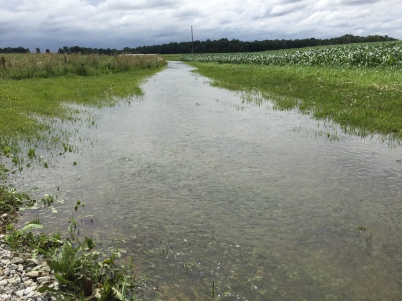The word sustainable…do you even know what that word means? To be honest, I still don’t completely know what the word means myself. I am currently taking two classes that focus on “sustainability” yet the two courses define the word in two totally different ways.

The definition of sustainability from my TSM 311 Class.
My TSM 311 class, Humanity in the Food Web, defines it as fulfilling the three categories of environmentally-friendly, economically-friendly, as well as socially. If a situation fulfills and supports those three categories, then it can be considered a sustainable resource.

The various meanings of sustainable from my Natural Resource and Environmental Science class.
My Introduction to Natural Resources and Environmental Sciences (NRES 100) class views it much differently. In this class, it is openly said that sustainability is a hard word to define because it is used in so many different ways. It was defined four different ways! There is the sustainability of resources, sustainability of an ecosystem, sustainability development, and sustainable growth.
So here are two classes that spend a whole week talking about the word sustainable, and I still have yet to know even what the word is supposed to mean. That is exactly why I am tired of hearing the word sustainable.
The Merriam-Webster Dictionary defines the term sustainable as being “able to be used without being completely used up or destroyed.” This means that a system is not necessarily declining, yet it is not building. So simply maintaining what already exists. Sustainability is not improving nor destroying a production system; it is a form of mediocrity.
So why would a farmer want to maintain a C average when it can be an A or A+? It doesn’t make sense to “sustain” a system that is already depleted. The goal is to improve that system to produce the highest quality product in the best environment.
When I think of a word that could more accurately describe this, I think of regenerating for the future. The term regenerative agriculture can best be defined as improving overall soil quality and health to strengthen a system and the outcome of the product. Farmers are looking for systems that can be resilient and regenerate.

Drainage ditch after heavy rainfall. As you can see, the water is crystal clear.
A prime example of this is a system’s soil fertility. This past summer, June rains were damaging to overall crop production. There was an evident deficiency in nitrogen and phosphate levels. In our farm operation, I began to notice something. If you look at the picture on the left, you will see that the water draining in the ditch is crystal clear. In these situations, you will often see unclear cloudy water, due to soil erosion and nitrogen and phosphate run-off. The reason the water in this picture is clear is because efforts were made to improve the soil by using no-till methods (like cover crops) and the addition of many essential elements. This prevents the soil from eroding after a heavy rainfall and helps it absorb and utilize rainfall for crop production.
Take into consideration that our farming system did not start out this way; it took many years to improve the overall health and quality of the soil. It has paid off and will continue to pay off as it regenerates.
Regenerative agriculture is a term that portrays innovation and advancement for the future. Sustainable is a word of mediocrity that society has adapted and deceived themselves into thinking is something that we should strive for and is ideal. Personally, I want to be better than average, and I think advocates for the agriculture industry would agree with me.
When I asked my dad what he thought of the word, he left me with this quote. “I don’t want to sustain my farm; I want to build it.” So let’s move beyond sustaining—let’s build for the future of the agriculture industry.
